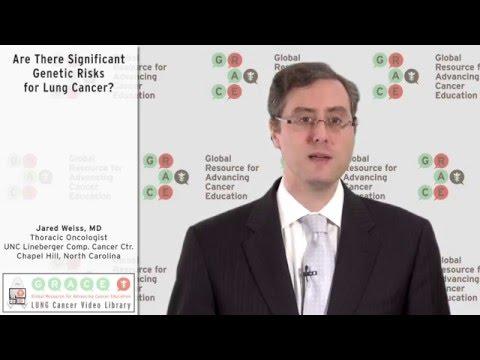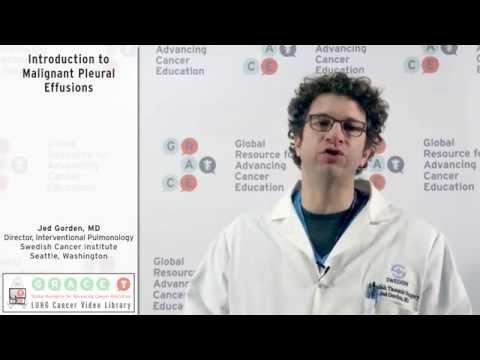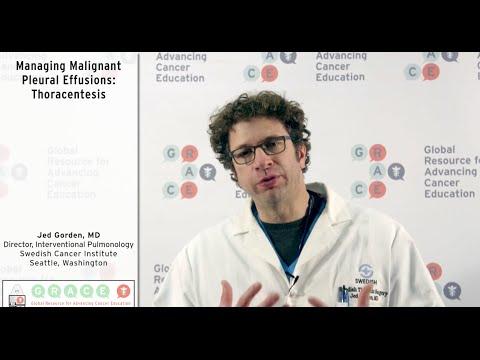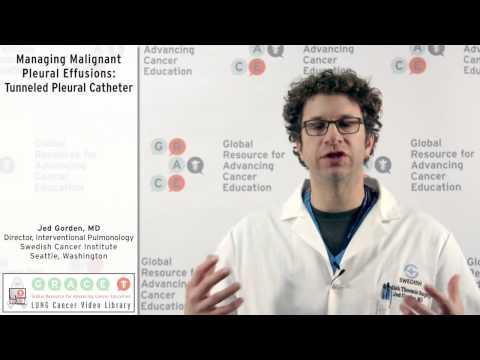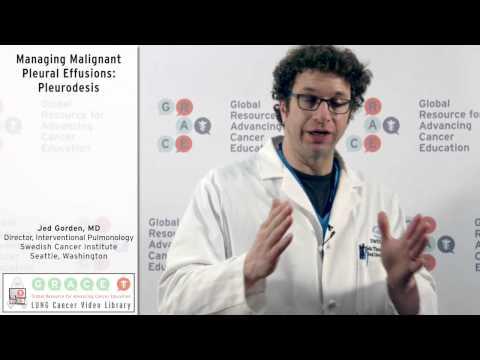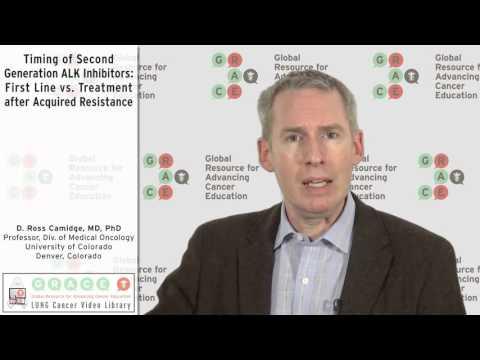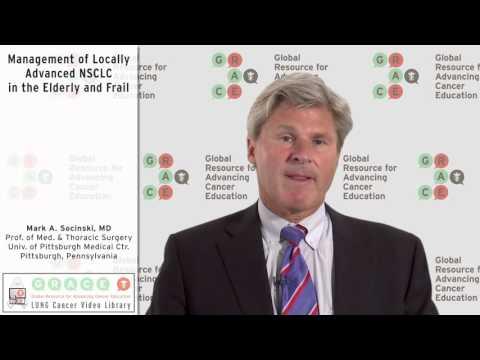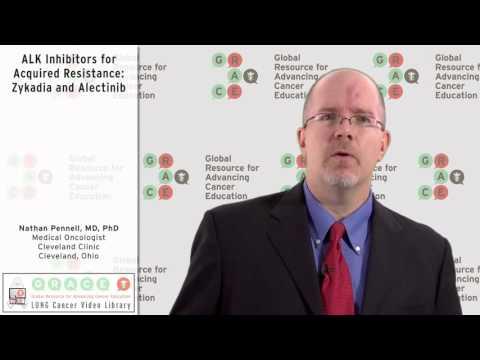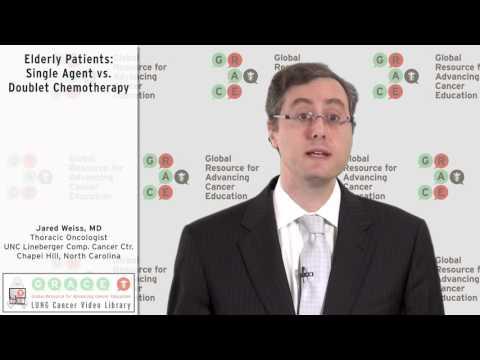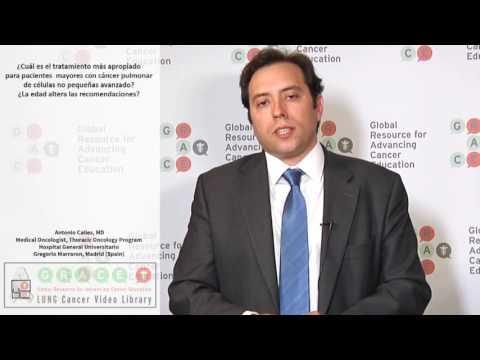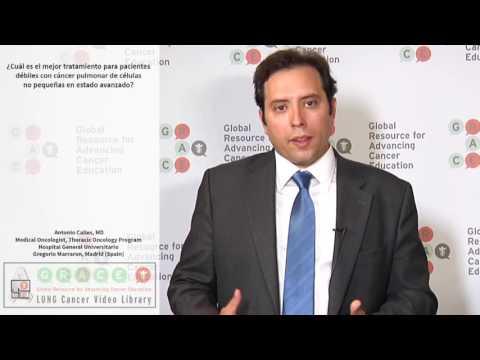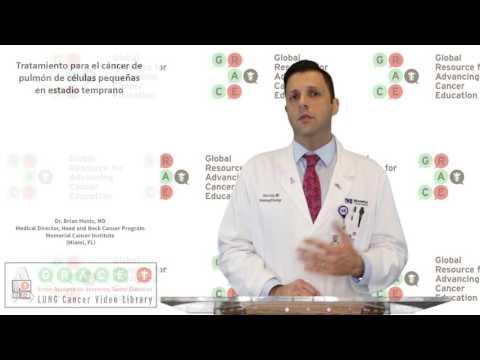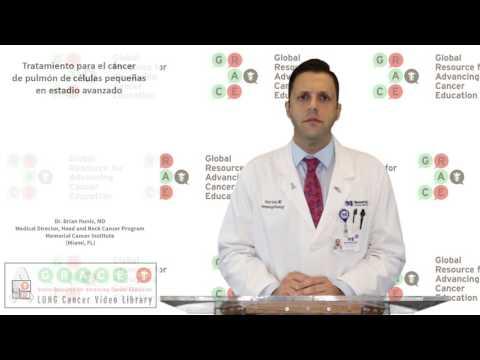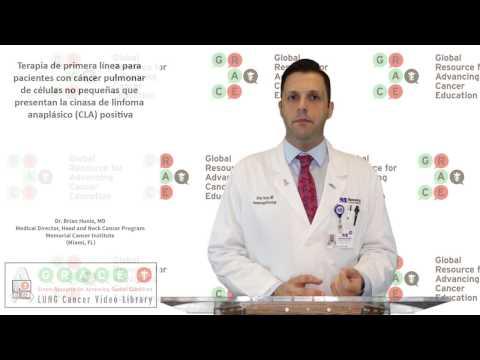Dr. Jared Weiss, UNC Lineberger Comprehensive Cancer Center, discusses the genetic risk (or lack thereof) for lung cancer.
Video Library
Search the Video Library
Video Language
Filter by Cancer Type:
Displaying Results 1 - 15 of 38
Interventional pulmonologist Dr. Jed Gorden reviews malignant pleural effusions (MPEs) are a common complication of lung cancer and some other cancers. Transcript So, I wanted to talk to you today about pleural effusions. Pleural effusions — it’s a complex term, and it’s a very common problem, so
Dr. Jed Gorden describes the details of how a thoracentesis is performed in order to clarify the diagnosis and treat symptoms of a malignant pleural effusion (MPE). Transcript With the pleural fluid that’s built up around the lung — this fluid that exist in between the linings, or as we discussed
A tunneled pleural catheter is an excellent way to manage the symptoms of a recurrent malignant pleural effusion. Dr. Jed Gorden describes how it is placed and how it works. Transcript So we’re talking today about pleural fluid — fluid that resides around the lung, in-between this space that we’re
Dr. Jed Gorden reviews the technique of pleurodesis to manage the complication of recurrent malignant pleural effusion (MPE). Transcript So we’re talking today about pleural fluid, the fluid that builds up around the lung — fluid that causes people be short of breath, often have symptoms like cough
Dr. David Harpole, Duke University Medical Center, describes how he assists patients with the surgical decision-making process.
Dr. Ross Camidge, University of Colorado, addresses the question of whether to use a second generation ALK inhibitor as first line therapy or only after acquired resistance to crizotinib.
Dr. Mark Socinski, University of Pittsburgh Medical Center, describes strategies for treatment of the elderly and frail patient with locally advanced NSCLC.
Dr. Nathan Pennell, Cleveland Clinic, discusses acquired resistance to Xalkori in ALK-positive patients, and second generation inhibitors designed to overcome that resistance, such as Zykadia and alectinib.
Dr. Jared Weiss, UNC Lineberger Comprehensive Cancer Center, discusses the use of single agent vs. doublet chemotherapy in elderly patients.
For our 5th video in the GRACE Spanish Lung Cancer Library, Antonio Calles, MD joined GRACE to discuss the most appropriate treatment for elderly patients with advanced NSCLC, and whether age alters the recommendations.
For our 7th video in the GRACE Spanish Lung Cancer Library, Antonio Calles, MD joined GRACE to discuss the best treatment for frail patients with advanced NSCLC.
For our 14th video in the GRACE Spanish Lung Cancer Library, Brian Hunis, MD joined GRACE to discuss treating early stage small cell lung cancer.
For our 15th video in the GRACE Spanish Lung Cancer Library, Brian Hunis, MD joined GRACE to discuss treating later stage small cell lung cancer.
For our 17th video in the GRACE Spanish Lung Cancer Library, Brian Hunis, MD joined GRACE to discuss first line therapy for NSCLC patients that have anaplastic lymphoma kinase (ALK) positive.

